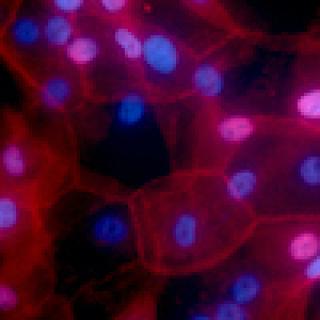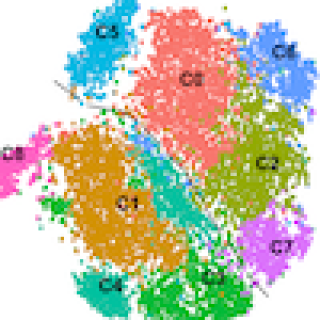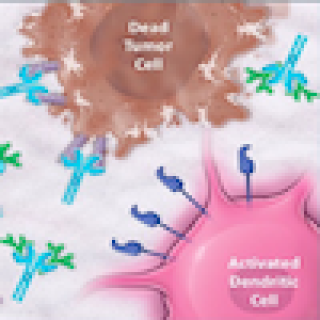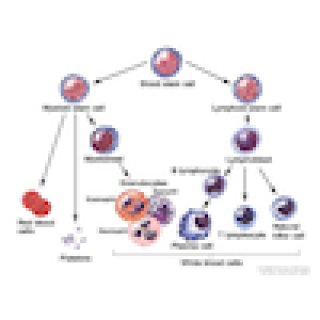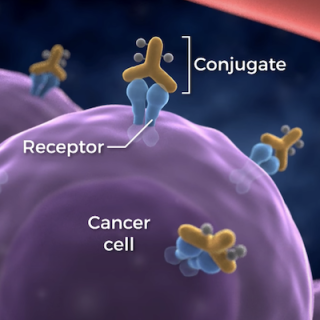News and Events
Celebrating CCR Careers: Alan Rein, Ph.D.
Alan Rein, Ph.D., is a known expert in the field of viral assembly, particularly in retroviruses like the human immunodeficiency virus (HIV). After an extensive career studying molecular mechanisms of retroviral replication and pathogenesis, he has announced his retirement.
Read MoreImmunotherapy combination tested for advanced/metastatic solid tumors
Adults with locally advanced or metastatic solid tumors that cannot be treated with surgery may be eligible to participate in a clinical trial at the NIH Clinical Center. James L. Gulley, M.D., Ph.D., Chief of the Genitourinary Malignancies Branch, is leading a study exploring several different combinations of immunotherapies to see if they improve responses in people with cancer.
Read MoreAnalysis of T cells from melanoma patients uncovers characteristics leading to cancer regression
CCR researchers used state-ot-the-art analytic techniques to determine characteristics of cells used in effective adoptive T cell therapy (ACT) in patients with advanced melanoma. This new information opens the door to manufacturing these cells in the laboratory and using them in immunotherapy for common cancers, including liver, breast, prostate, and colon cancer.
Read MoreClinical trial evaluates therapy for adults with relapsed/refractory HCL
Robert J. Kreitman, M.D., Senior Investigator in the Laboratory of Molecular Biology, is leading a study of a treatment for hairy cell leukemia (HCL). The goal of this study is to determine the overall rate of response to binimetinib, an MEK inhibitor, in patients with HCL who do not have a BRAF gene mutation.
Read MoreTreatment for women with advanced, untreated cervical cancer tested in new clinical trial
Women 18 and older with previously untreated advanced cervical cancer may be eligible to participate in a clinical trial at the NIH Clinical Center. Christian S. Hinrichs, M.D., Senior Investigator in the Genitourinary Malignancies Branch, is leading a study of a treatment called induction immunotherapy that uses the patient’s own T cells (immune cells) to attack their cancer cells.
Read MoreClinical trial studies drug combination for EGFR-mutated adenocarcinomas
Adults with epidermal growth factor receptor (EGFR)-mutated non-small cell lung cancer that has transformed to small cell lung cancer or a neuroendocrine tumor may be eligible to participate in a clinical trial at the NIH Clinical Center. Anish Thomas, M.B.B.S., M.D., NIH Lasker Clinical Research Scholar in the Developmental Therapeutics Branch, is leading a trial testing a drug combination to treat these kinds of tumors.
Read MoreClinical trial evaluates therapy for advanced or metastatic solid tumors
Marijo Bilusic, M.D., Ph.D., Associate Research Physician in the Genitourinary Malignancies Branch, is leading NCI’s participation in a multicenter study for adults with advanced or metastatic solid (non-blood) tumors that have not responded to standard treatments. This phase 1 study will evaluate a therapy, NC410, for any serious side effects and determine the best dose that will achieve an antitumor response.
Read MoreEmbryonic stem cells have their own strategy for protecting chromosome ends
According to new research from CCR scientists, embryonic stem cells have a unique way of protecting their telomeres, the structures at the ends of chromosomes that shorten with every cell division. Understanding it could help explain how some cancer cells circumvent the growth limits imposed by the natural shortening of telomeres that occurs as we age.
Read MoreClinical trial studies modified treatment regimen for patients with B-ALL
B-cell acute lymphoblastic leukemia (B-ALL) is a fast-growing type of blood cancer in which too many B cells multiply in the bone marrow and blood. Haneen Shalabi, D.O., Assistant Research Physician in the Pediatric Oncology Branch, is leading a study looking at a different way of preparing patients for bone marrow transplant after they have received treatment for B-ALL.
Read MoreClinical trial to test drug for cancer patients with weakened immune systems
Cancer survivors age 60 and older have weakened immune systems, often caused by cancer treatments. Investigators want to see if a drug, NT-I7, is able to boost the response to vaccines in patients who otherwise may not be able to respond.
Read MoreJapan approves photoimmunotherapy for head and neck cancer
Promising clinical trials have led to the regulatory approval of the Bioblade® Laser System and Akalux® IV Infusion 250mg in Japan. This device and drug combination was developed under an investigational treatment platform based on a cancer therapy called photoimmunotherapy.
Read More
